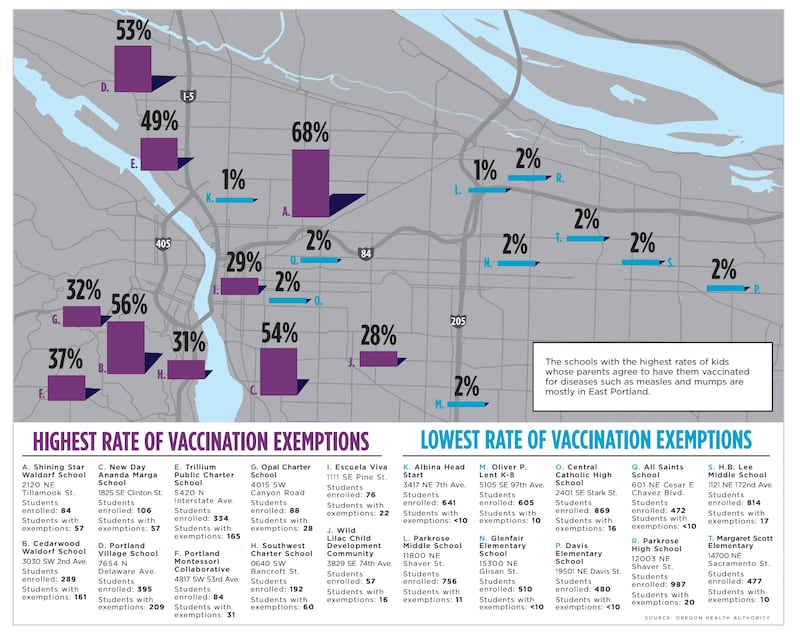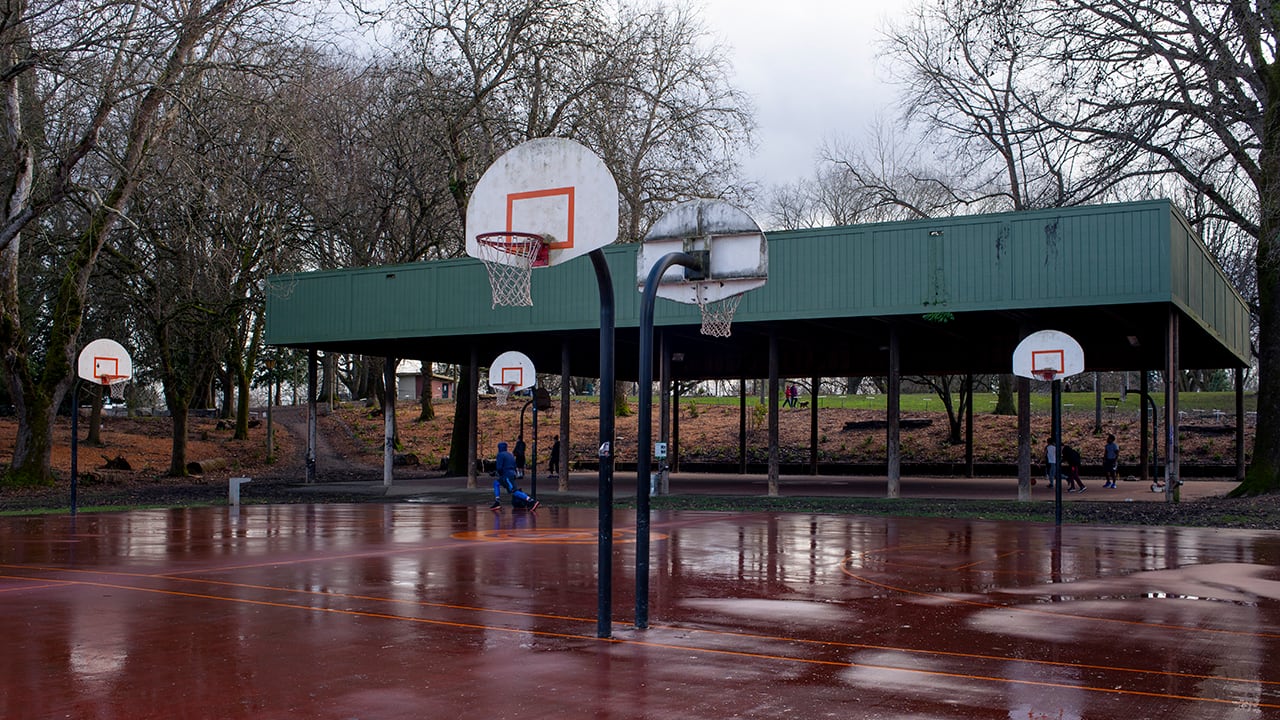This story first appeared in the Feb. 11, 2015, edition of WW.
Shining Star Waldorf School doesn’t look like a potential incubator for an outbreak of disease.
The small private school holds elementary and middle-school classes in a church basement in the tony Irvington neighborhood. It offers outdoor school each Thursday at park lands like Elk Rock Island and Kelley Point Park. Last month, Shining Star celebrated its annual “festival of the bees”—a fundraiser selling beeswax and honey.
Shining Star is also the Portland school with the highest rate of kids whose parents have opted out of state vaccination requirements on philosophical or religious grounds. According to state records, that’s 57 of 84 Shining Star students.
Oregon has the highest rate of philosophical exemptions to vaccines in the country. WW’s review of state data from 2014 shows this refusal to vaccinate kids is highest in the city’s wealthiest neighborhoods. All 10 schools with the highest non-medical exemptions are private or public charter schools—many with an alternative bent, like Waldorf or Montessori schools.
Shining Star administrators tried unsuccessfully to get parents who object to vaccinations to speak with WW. “In regard to vaccines, we remain neutral,” says school office manager Susie Martin. “We are not part of the decision process.”
Parents say fears are overblown. “I’m not worried for my children today, coming to school,” says Rose Brooks, a former Oregon Health & Science University nurse whose three kids—all immunized—attend Shining Star. “I’m well aware of the public health implications of not vaccinating. Butit feels a little oversimplified to say, ‘I know what’s best for you.’”
One state official who has struggled to convince parents they should vaccinate their children says unfounded fears about immunization—such as for measles, mumps and rubella—have created a potential public health problem.
“These parents are mostly affluent,” says Susan Wickstrom, an Oregon Health Authority spokeswoman who spent six months in 2012 traveling to schools with high exemption rates. “They’re white, well-educated people. Some of them think getting the disease is healthier than getting the vaccination.”
The state figures reflect the number of children whose parents have exercised the state exemption. Some of those children may have had some vaccinations on a different schedule than the state requires.
An outbreak of measles that started at Disneyland last month has brought new scrutiny on the “anti-vax” movement: parents who choose not to immunize their children because of their personal beliefs. Physicians fear those unvaccinated kids could spark a comeback of fatal childhood diseases long thought to be nearly eradicated.
The schools with the highest rates of kids getting their shots? Many of them are in East Portland neighborhoods that have struggled with poverty.
State Sen. Elizabeth Steiner Hayward (D-Portland/Beaverton) introduced legislation last week to end the choice to opt out. She says she’s willing to buck her wealthy constituents.
“They need to be challenged,” Steiner Hayward tells WW. “I think people of more affluent lifestyles have been buffered from the effects of poor medical care. I’m a firm supporter of a healthy diet and a natural lifestyle. But none of those things will protect you from the measles.”


